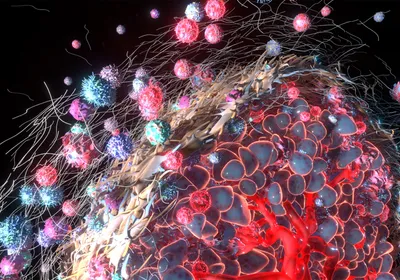ABOVE: Organoids such as these ones made from healthy human colon cells could help researchers predict patient responses to drugs in vitro.
JARNO DROST
As researchers improve ways to quickly and cheaply sequence DNA, the concept of precision medicine is gaining a foothold in the medical community. When it comes to cancer, a disease that leaves its mark in a patient’s genome, sequencing tumor DNA to tailor treatment plans to individuals seems an obvious application of the technology. “The idea of precision medicine as in individualized treatment, I think that makes so much sense,” says Alice Soragni, a cancer biologist at the University of California, Los Angeles (UCLA) David Geffen School of Medicine. “When you work with a few of these tumors, each and every one is a bit different.”
Over the past few years, the field of oncology has shifted in this direction. In 2017, the US Food and Drug ...























